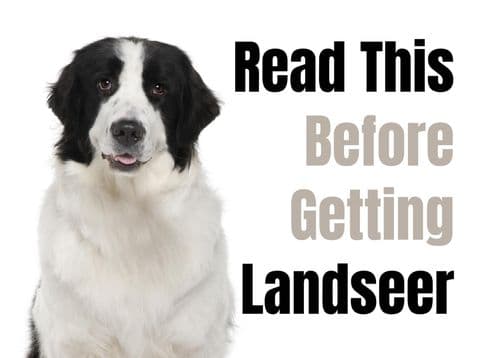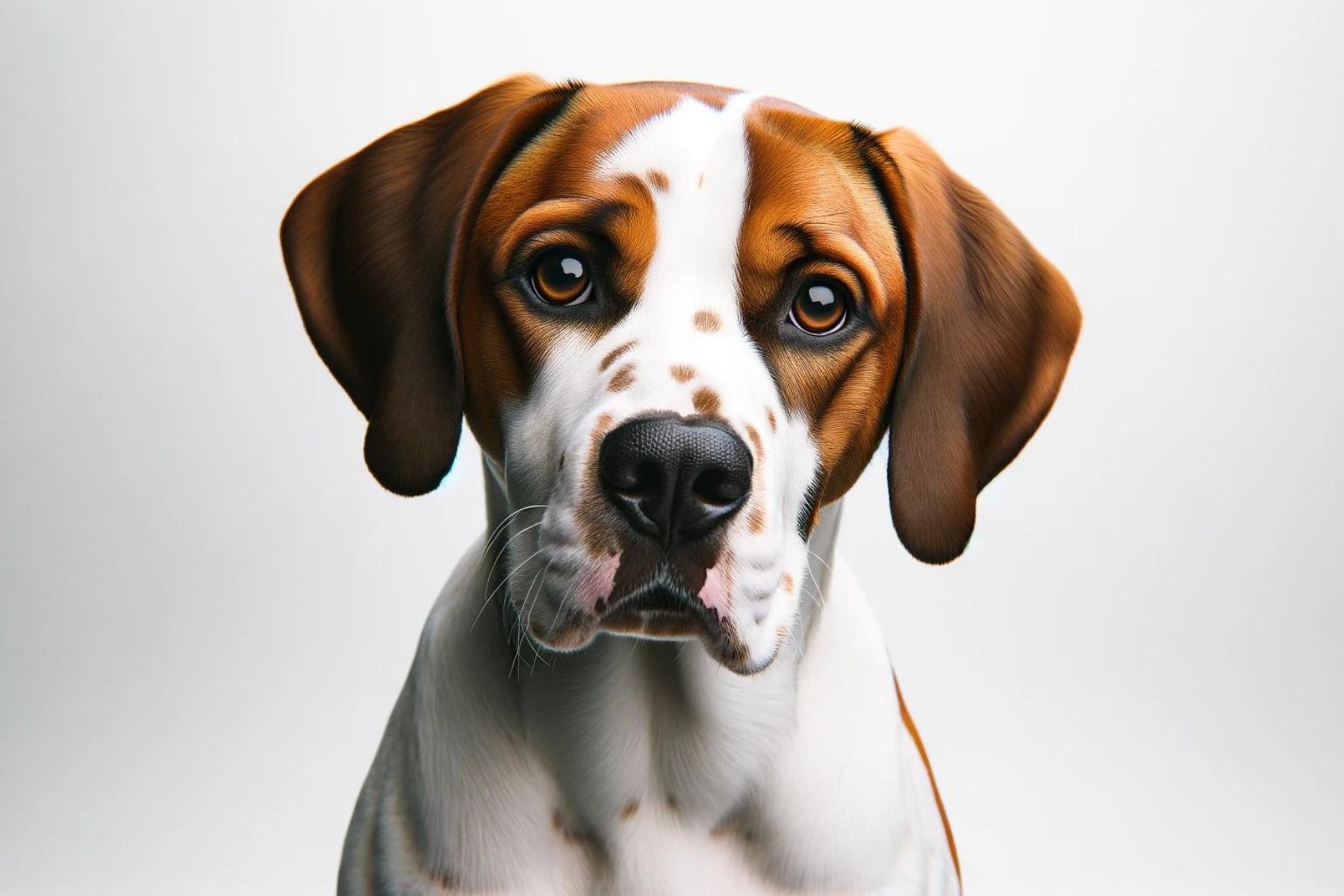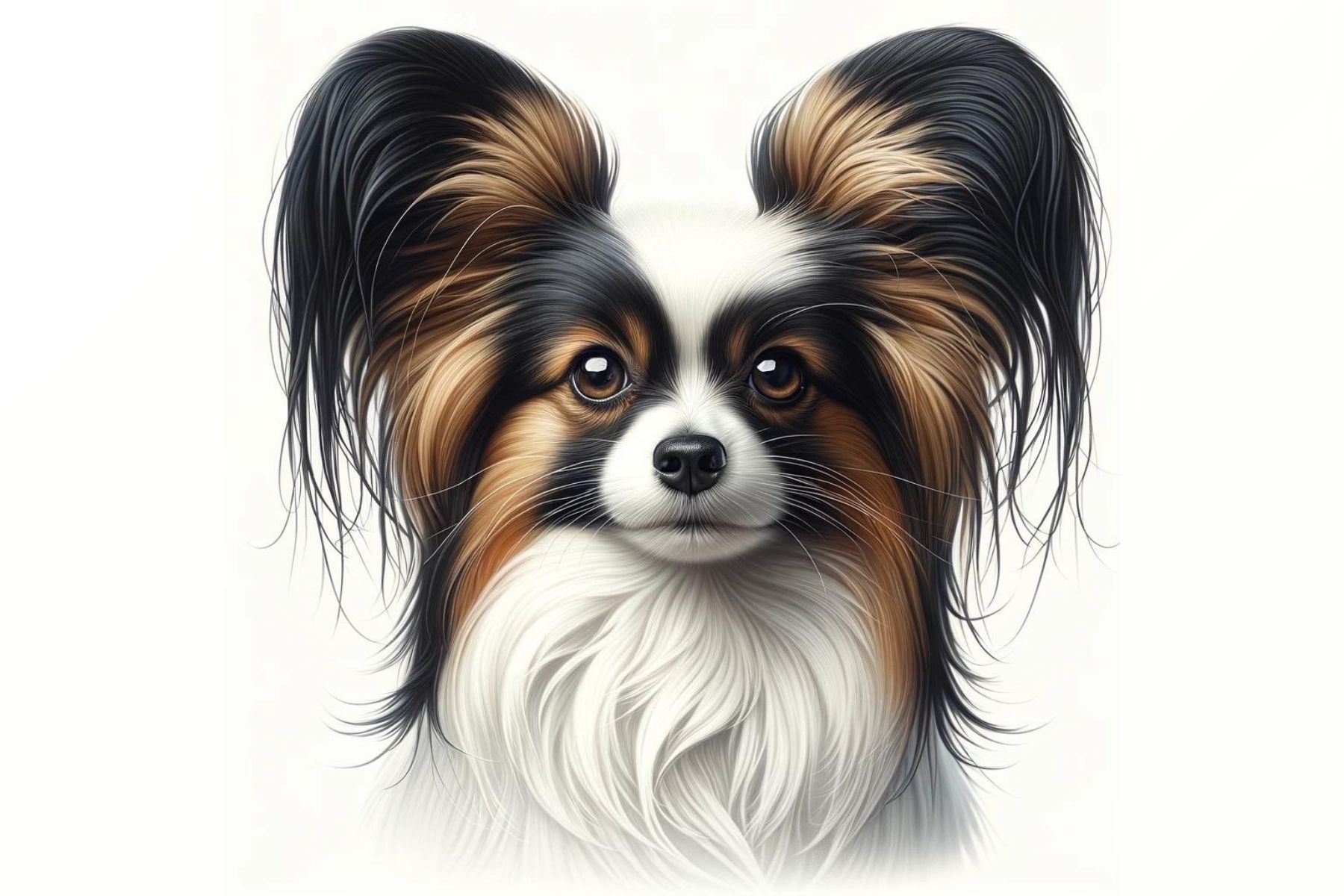Consider These 19 Factors Before Purchasing a Landseer Puppy

The ancestry of the Landseer can be traced back to Newfoundland in Canada. In 1900, Swiss and German breeders began taking the breeding of the Landseer seriously, and they established the standard that all purebred Landseers adhere to today, which includes their distinctive black and white markings. It was Newfoundland fishermen at the turn of the 19th century that first introduced the Landseers to England. The Landseer was initially named after the British artist Edwin Landseer. But the Landseer is still not recognized as a pure breed by the United Kennel Club, the American Kennel Club, or the Canadian Kennel Club. The Landseer is a great family dog since it is calm, loyal, lively, and confident once taught and socialized. Is this the right dog for you and your household? Here’s a complete list of things you need to consider when thinking of bringing one home!
The Landseer loves attention.
The Landseer requires a great deal of care and supervision. Because of this, it is not the right dog for you if you need to leave him alone for extended periods.
Its friendly acts, like cuddling, playing, and an upbeat demeanor, are its way to attract your attention constantly. Also, it will enjoy every minute because it craves interaction with people.
However, if it is not exposed to new people at a young age, it may never develop these skills and may display a high degree of wariness around strangers.
This breed makes an excellent pet.
This breed makes a fantastic pet and member of the family, as they thrive in domestic settings. Landseers are not suited to life as outdoor pets and thrive best when they are close to their human family. They are pretty active and like spending time with the family.
A dog of this breed will be happiest if it is allowed to participate in all of the family's pursuits. They are perpetual party crashers. In addition to being loyal, dignified, and calm, this breed is one of the most beautiful in the world.
They have the potential to form deep bonds with their owners. These dogs are not only intelligent and protective, but they also prefer to physically block an intruder from reaching the family rather than barking or growling at them.
The Landseer has a gentle temperament.
The Landseer temperament is best described as gentle. Indeed, many dog owners argue that their canine companions are the quintessential examples of the "gentle giant" nickname. After all, it is best renowned for its exceptional ability to interact with young people.
A Landseer will have no problem confronting an enemy. However, he lacks an aggressive temperament and is less inclined to take action immediately.
If his owner or the situation warrants it, he will attack. It can evaluate a situation and then act boldly when necessary.
However, due to its large stature, the Landseer should be monitored closely whenever it is around children. They may become too playful and inadvertently knock over a little child, but you needn't worry about this breed ever intentionally attacking your children.
The Landseer is an intelligent breed.
High intelligence is a hallmark of the Landseer temperament, making these creatures easy to teach. Their intelligence provides them the freedom to think for themselves and act autonomously. This Landseer characteristic has both positive and negative aspects.
On the other side, its great intelligence means it can pick up just about any command you throw. It can quickly identify anything that looks like a threat and assess the situation.
This breed is independent.
Since it can make its own choices, it can engage in its form of amusement. If you don't pay it the attention it craves, it may become difficult to live with because of this trait.
For instance, one of its favorite pastimes is rummaging through trash cans. It won't think twice about ripping apart your shoes or starting a riot when ignored. Therefore, you must give it daily mental stimulation.
The Landseer is a loyal breed.
When your life is on the line, it will not hesitate to put itself in jeopardy to save you. After all, early examples of the breed saved several lives from drowning. They will be brave because of their unwavering loyalty to their families.
It would do anything for its loved ones. It's not an exaggeration to state that a Landseer has the perfect temperament for a loyal canine friend.
The Landseer is incredibly patient.
Additionally, extreme patience is a defining characteristic of the Landseer personality. The breed is remarkably accommodating and is not easily angered. Landseers, thanks to their attention-grabbing antics, make fantastic traveling companions.
For this reason, it is a good breed for a person just getting into dog ownership. Its laid-back temperament aids in quickly training it. As you navigate the struggles of having your first dog, you will maintain a focused and involved attitude during all training sessions.
This breed has an extended puppy stage.
The Landseer is one of the more friendly and easy-going breeds to train. The fact that its personality is built on kindness and compassion rather than protective instincts is also helpful.
However, it may prove difficult to train because of its extended puppyhood. The Landseer's puppyhood lasts much longer than most other breeds because it develops slowly. It was reported to last around 18 months.
Because of this, socialization is crucial to prevent negative behaviors from becoming imprinted at a young age. Using positive reinforcement and rewards as methods to train a Landseer is recommended.
These techniques are tailor-made for it and guarantee a close relationship with its owner. However, all you need to do in terms of training is to be consistent and firm.
The Landseer is relatively moderate to maintain.
Maintenance of the Landseer's second coat can be time-consuming. It needs to be brushed frequently to keep the fur from matting and tangling. Every other day is recommended. The time spent grooming your pet is quality time well spent.
You must give them a bath once every two months to prevent the formation of mats and tangles. It also has a reputation for being a big shedder, especially as the weather changes.
The undercoat is shed in the spring and fall, necessitating special attention. The springtime is the peak shedding season.
A dog's natural oils may be lost if it is regularly bathed. You can use dry shampoo between washes to keep your hair looking fresh.
Now that you know, you'll need a lint roller to get rid of the Landseer fur that's sure to accumulate on your clothing. The specific grooming needs of the Landseer are mostly unknown outside of these minor details.
Regularly inspect ears for accumulated tar and wax. You should floss and brush its teeth once a week. In warmer weather, the coat can be cut shorter for more ease.
The Landseer is prone to some health issues.
The Landseer has a significantly shorter lifespan of between 8 and 10 years than most other breeds. This unfortunate fact is due to their enormous size and the predisposition they have to some medical problems. This includes hip dysplasia, sub-aortic stenosis (a form of genetic heart disease), and many more.
At 8-12 weeks, a veterinary cardiologist should examine the puppies' hearts to ensure they are healthy. For adult Landseers to breed in good health, they must once again clear of SAS (sub-aortic stenosis).
Taking your Landseer to the vet regularly will help you keep these diseases in check. Making sure your dog gets regular checkups is the first step in making sure they live longer than the typical lifetime for their breed.
The Landseer is descended from guard dogs.
It is believed that the ancestors of the Landseer were fishing dogs from the Newfoundland region of Canada. Newfoundlands were primarily employed in the roles of water dogs and livestock guardians.
Because they protected the flock from within rather than by corralling the animals, these guard dogs were distinct from dogs used to herd livestock. As a result of this quality, the Landseer is now often regarded as an excellent watchdog.
These dogs have a history of being first responders.
The canines in question have previously served as rescue dogs. They let themselves be a lifeline for someone else who is in peril.
When bringing an unconscious individual to shore, they have been known to hold them by the upper arm to keep their head out of the water. They even spent time as lifeguards for the British government, ensuring no one ventured too far from shore and saving those in need.
Legend has it that Napoleon Bonaparte fell into the water upon his return to France and was rescued by one of these dogs.
These dogs are good with kids and with other pets.
It has been shown that Landseer breeds are among the most suitable canine species for households with young children. These dogs are enormous, but they are pretty gentle and need human companionship.
These dogs have a history of guarding other animals, which makes them patient with kids and a good watchdog. In contrast, their size makes them a hazard to young toddlers who might get tripped up by accident.
Dogs of this breed get along nicely with other pets because they were bred to be guard dogs, not hunting dogs. They were initially bred to guard sheep, so it stands to reason that they are also good with smaller pets and livestock.
Male Landseers have occasionally shown some aggression toward other male dogs, although this is a teachable trait. For this reason, they are suitable for homes with several canine companions.
The Landseer needs a high-protein diet.
The average puppyhood for Landseer is 18 months. A high-protein diet is recommended at this time to ensure proper development. Because of the high risk for obesity, adult Landseer should be fed high-quality dog food for medium-to-large dogs.
Two meals a day is the minimum you should be giving your dog. A large dog's daily food intake should be based on the instructions on the bag of food you purchase.
However, the best method to find out what is best for your pet is to consult with a veterinarian. Landseer dogs fare best in temperate regions. The Landseer doesn't drool as much as its Newfoundland relative, but it occasionally does.
The Landseer is a moderately active breed.
It is widely held that the Landseer breed is more energetic than the other Newfoundland breeds, making it a fantastic companion for outdoor activities like hiking and camping.
This pet needs daily exercise and some open space. A Landseer's demand for a fenced yard, despite its contentment in staying indoors, stems from the fact that it is not terrified of cars or strangers. Be wary of their digging abilities and secure your fence well into the ground.
These dogs need to be trained and socialized early.
These canines are known to be a little stubborn, so early on in their lives is the best time to start training. Socialization and training should begin as soon as possible after bringing home the new puppy.
These dogs respond best to consistent positive reinforcement during training. The Landseer should be taught early on to always be at your side.
Even though Landseers are generally kind to newcomers, they can nonetheless startle humans by suddenly unexpectedly bounding towards them because of their massive size.
Puppy training, like children's, should be done in frequent, brief sessions. Their attention spans are better accommodated by shorter training sessions more frequently throughout the day than by a single, extended session lasting more than an hour.
Prioritize the mastery of a single skill before moving on to the next. To avoid getting your dog fat, treats can be used as a reward to prevent getting your dog fat but only in moderation.
The Landseer is a well-balanced dog.
The Landseer is an exceptional dog because of its excellent nature, bravery, generosity, and intelligence. It's a calm dog that doesn't mind strangers and is wholly devoted to its owner.
It has a pleasant nature and is noble, peaceful, kind, loyal, trustworthy, graceful, incredibly devoted, strong, and courageous.
A dog of this sufficient intelligence prefers to physically block an intruder from reaching his family rather than bark or make a scene. When a family member is in danger, most Landseer will take action.
A warm welcome is extended to any dog, another animal, child, or guest who does not pose any threat. This dog takes pleasure in the great outdoors but also needs company.
The Landseer loves water.
The Landseer enjoys getting wet; therefore, it drinks a lot of water and could make a mess. While not as drooly as some other gigantic breeds, they still tend to drool.
They are excellent swimmers, so if you're going on a camping trip near the water, don't let the Landseer carry your sleeping bag. Because of their webbed feet, these canines were initially bred for their ability to swim.
They benefit from swimming as a kind of exercise in milder areas. Be sure the water they are swimming in is safe. Stay away from puddles and trash-strewn places. The same goes for your dog; keep its vaccinations up-to-date to prevent water-borne diseases.
This breed thrives indoors as long as adequately exercised.
If the Landseer gets enough exercise, they should be OK living in an apartment. As a rule, they spend much of their time indoors, sleeping or watching TV. Due to their heat sensitivity, your Landseer will need access to frequent periods of shade and cool water periods when the weather gets warmer. These canines are most comfortable in relaxed environments.
Even though it's pretty happy to lounge about the home all day, this gentle giant needs a daily walk. Since, from a dog's perspective, it is the human who is in charge of the walk, it is essential to teach the pet to heel next to or behind the person holding the leash.
In summary, a Landseer's friendly and gentle nature makes it a good fit in various urban, suburban, rural, or country settings. However, this breed isn't a good match for somebody who is usually busy.
They will engage in problematic behavior if it isn't given regular attention from their favorite person. If you're willing to spend time with the Landseer, it may be an excellent addition to your family. What you learned here should help you better understand this breed. If you've made up your mind, this dog will surely give you a life full of cuddling and enjoyment!



